Clancy Tucker's Blog, page 189
May 1, 2017
2 May 2017 - FAMOUS AUTHORS REJECTED
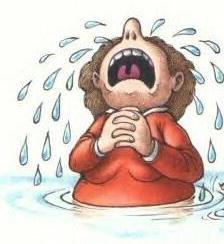
FAMOUS AUTHORS REJECTED
G'day folks,
In my first few years as a full time writer, I used to tell people that I had enough rejections to wallpaper my toilet. Some years down the track I changed that to my entire lounge room. so, check out some of these rejections from famous authors. Writers, you are not alone.
J.K. Rowling
Harry Potter and the Philosopher’s (later Sorceror’s) Stone was rejected by a dozen publishers, including biggies like Penguin and HarperCollins. Bloomsbury, a small London publisher, only took it on at the behest of the CEO’s eight-year old daughter, who begged her father to print the book. God bless you, sweetheart.
Ursula K. Le Guin
One publisher sent this helpful little missive to Ms. Le Guin regarding her novel, The Left Hand of Darkness:
The book is so endlessly complicated by details of reference and information, the interim legends become so much of a nuisance despite their relevance, that the very action of the story seems to be to become hopelessly bogged down and the book, eventually, unreadable. The whole is so dry and airless, so lacking in pace, that whatever drama and excitement the novel might have had is entirely dissipated by what does seem, a great deal of the time, to be extraneous material. My thanks nonetheless for having thought of us. The manuscript of The Left Hand of Darkness is returned herewith.
The Left Hand of Darkness went on to win both the Hugo and the Nebula awards.
George Orwell
One publisher rejected Mr. Orwell's submission, Animal Farm, with these words:
It is impossible to sell animal stories in the USA.
Tony Hillerman
Mr. Hillerman, now famous for his Navajo Tribal Police mystery novels, was initially told by publishers to
Get rid of all that Indian stuff.
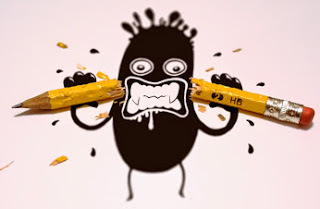
William Faulkner
One publisher exclaimed in the rejection letter for Mr. Faulkner's book,Sanctuary:
Good God, I can’t publish this!
John Grisham
Mr. Grisham’s first novel, A Time to Kill, was rejected by a dozen publishers and 16 agents before breaking into print and launching Mr. Grisham's best-selling career.
Vladimir Nabokov
Mr. Nabokov's Lolita was greeted by one publisher with these words:
…overwhelmingly nauseating, even to an enlightened Freudian…the whole thing is an unsure cross between hideous reality and improbable fantasy. It often becomes a wild neurotic daydream…I recommend that it be buried under a stone for a thousand years.
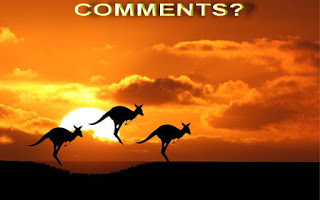
Clancy's comment: Keep on battling. Try to make them eat their words.
I'm ...


Published on May 01, 2017 15:12
April 30, 2017
1 May 2017 - HUMOUR AND ANIMALS
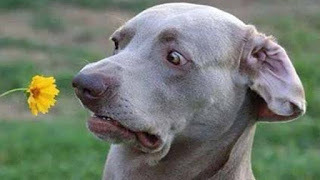
HUMOUR AND ANIMALS
G'day folks,
Welcome to some more funny pictures of animals.
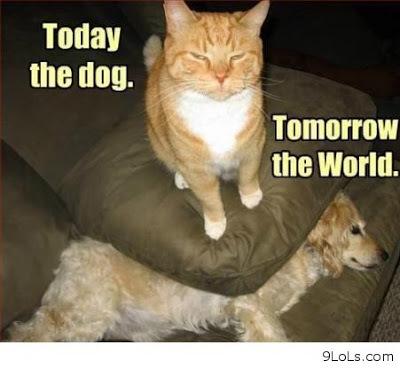
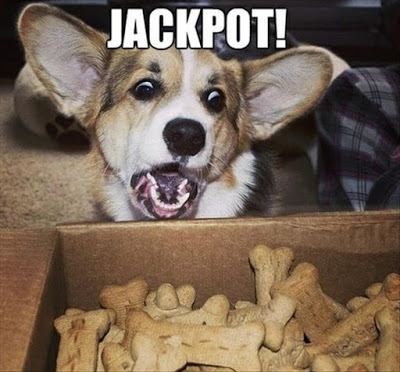
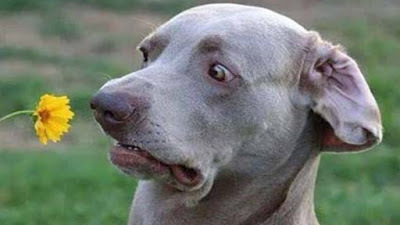
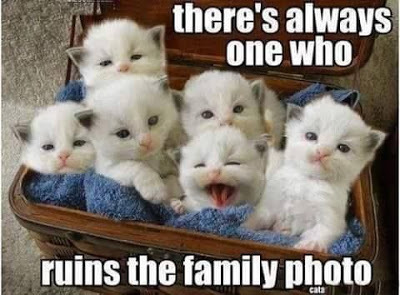
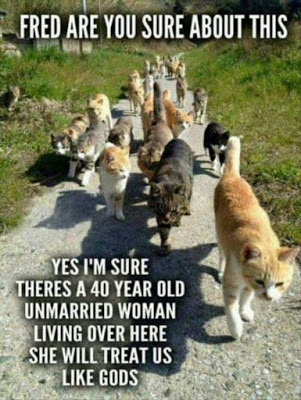

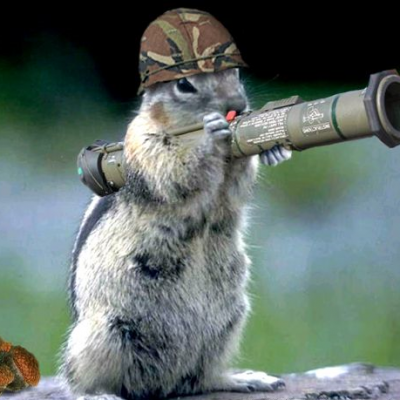
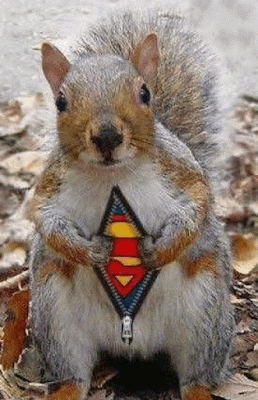
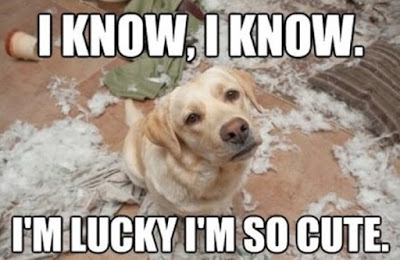
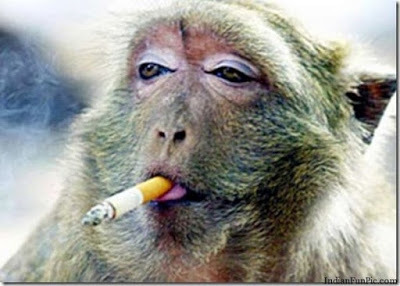
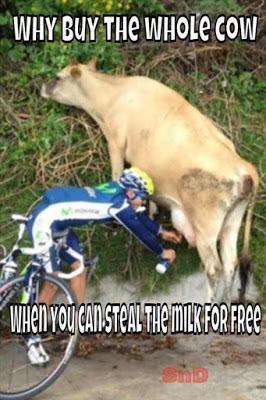

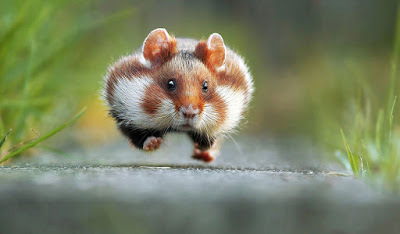




Clancy's comment: I love heaps of these. What about you? Make you grin?
I'm ...
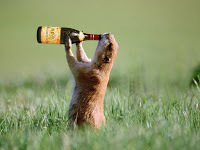

Published on April 30, 2017 14:50
April 29, 2017
30 April 2017 - RUNNING REPAIRS

RUNNING REPAIRS
G'day folks,
Welcome to some more samples of running repairs.







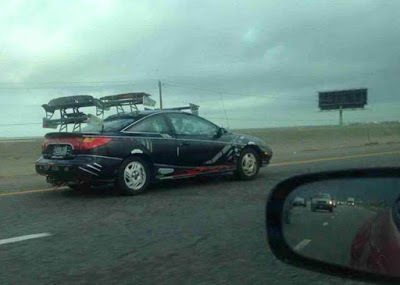



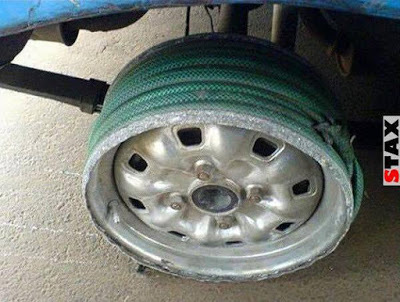
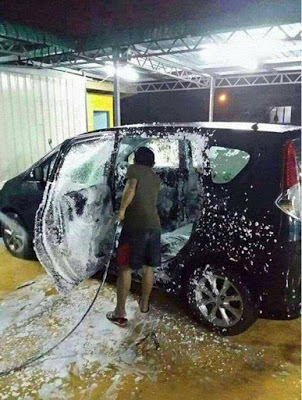
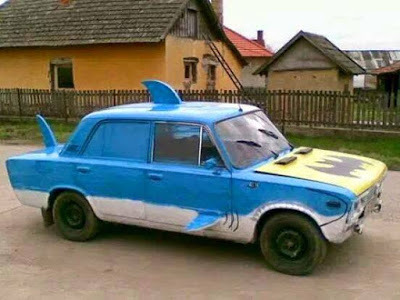
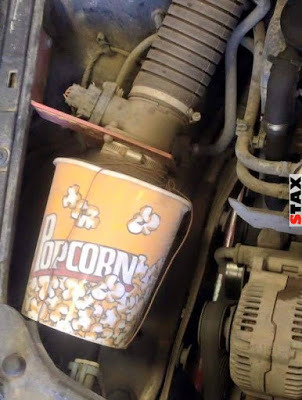
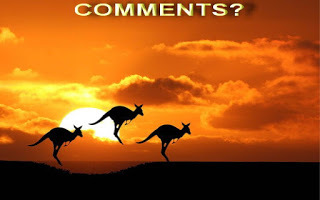
Clancy's comment: No doubt, every one of them is an unemployed rocket scientist.I'm ...
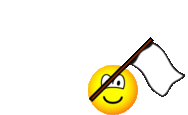

Published on April 29, 2017 14:54
April 28, 2017
29 April 2017 - MORE TRICKY WORDS
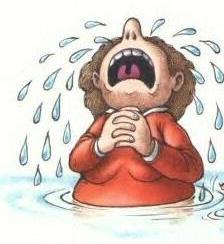
MORE TRICKY WORDS
G'day folks,
Welcome to a few more of those tricky words.
11. HEARTY/HARDY
Hearty is for things that are warm and nourishing, like a robust welcome or an abundant feast. They have heart. Hardyis for things that are tough and durable, that can stand up to the elements and survive. They are hard.
12. DEEP-SEATED/DEEP-SEEDED
Whether you're talking about fears, habits, or emotions, the correct term is deep-seated. Talk of depth and rootedness brings the idea of planting to mind, but seeds don’t enter into this expression.
13. COMPLIMENT/COMPLEMENT
A compliment is a kind or flattering comment. Complement means to go together well. Your shoes may complement your dress, but if I remark on how sharp you look I am giving you a compliment.
14. HOARD/HORDE
To hoard is to collect and keep things in a secure or hidden place, and hoarditself keeps its stash of vowels all tucked away inside the word. A hordeis a big crowd. Its vowels are scattered over the word, like a horde of tourists on a sidewalk.

15. LOATHE/LOATH
Loathe is a verb meaning to hate. It is a more severe sentiment than loath, which means reluctant. Loathwill always be followed by to, as in “I am loath to make small talk with people I loathe.”
16. PERPETRATE/PERPETUATE
They only differ by one letter, but perpetuate gets a whole extra syllable. That works well, because perpetuate means to keep something going (to make it perpetual) while perpetrate is to commit a single act, usually a crime.
17. PORE OVER/POUR OVER
When you study a document carefully, you pore over it (almost as if you are inspecting its tiny pores). If you were to pour something over it, like juice or coffee, that would make it much harder to read.
18. CONSCIENCE/CONSCIOUS
Conscience is a noun, and consciousis an adjective. A conscience can be cleared, or keep you awake at night, or tell you what decision to make. Conscious is a description of a state. If you’re conscious you're awake and aware.
19. WHO’S/WHOSE
If you can substitute in “who is” or “who has,” then the one you want is who’s, otherwise it’s whose.
20. AMUSED/BEMUSED
It’s better to be amused than bemused. Amused means entertained, while bemusedmeans puzzled or confused. It’s the difference between a smile and a head scratch.

Clancy's comment: I hope you were amused as you pored over these words.
I'm ...
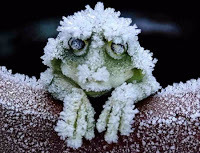

Published on April 28, 2017 14:51
April 27, 2017
28 April 2017 - BUZZ WORDS & DI BATES
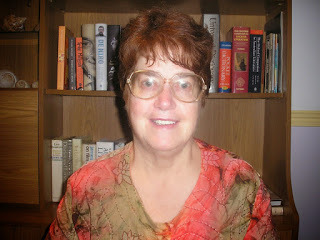
BUZZ WORDS & DI BATES
G'day folks,
Today, I introduce a very successful Australian writer who introduced a subscriber-based twice-monthly online magazine called BUZZ WORDS. Di has many top book reviewers and one of them, Anastasia Gonis, has written a review for all of my books. Hence, I thought it was time I paid my dues to Di.
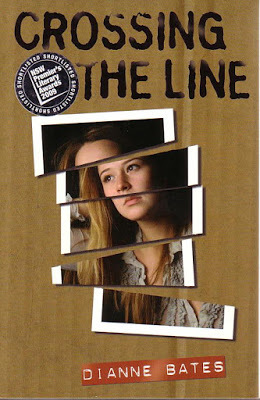
ABOUT DI BATES:
Australian author DIANNE (DI) BATES has published 120+ books for the education and trade markets. Some of Di’s books have won national and state literary awards; others have sold overseas. Di has received Grants and Fellowships from the Literature Board of the Australia Council and has toured for the National Book Council.
Di has undertaken commissioned writing for a large number of organisations and has worked on the editorial team of the NSW Department of Education School Magazine. She was co-editor of a national children’s magazine, Puffinalia (Penguin Books) and editor of another national magazine, Little Ears.
In 2008, Di was awarded The Lady Cutler Prize for distinguished services to children’s Literature. Her latest books are 11 titles in the fictional Bushranger series (Desert Dan the Dunnyman won the KOALA children’s choice book award) and Crossing the Line, short-listed for the NSW Premier’s Awards and sold into Germany. More recently she has published a junior verse novel, Nobody's Boy (Celapene Press) and A Game of Keeps (Celapene Press).
Currently Di works as a freelance writer.

ABOUT BUZZ WORDS:
In 2006 Di started a subscriber-based twice-monthly online magazine exclusively for people in the Australian children’s book industry, such as writers, illustrators, librarians, publishers – in fact, anyone interested in children’s books. As an editor she gathers material from many sources and sometimes commission material. Buzz Words’ aim is to keep readers abreast of what’s currently happening in the children’s book industry and to give them as many opportunities to get informed and possibly published.
Every issue contains industry news, publisher profiles, profiles of people in the industry, an interview (editors, publishers, designers, etc), opportunities, markets, competitions and awards, recommended books and websites/blogs, festivals and conferences, workshops, article/s, subscribers’ achievements, letters to the editor and children’s book reviews. Links are frequently provided to help readers.
Buzz Words is as subscriber-friendly as possible. Preference for interviews, articles, profiles, etc is always given to subscribers. Subscribers are also given the opportunity to advertise for free if they have a product and/or service.
The magazine also has a children’s book review blog http://buzzwordsmagazine.com where a new children’s book review appears every day. Reviews are also linked through the magazine to the blog. Buzz Words has 20 reviewers; we review for most children’s publishers in Australia.
Di is happy to send anyone the latest issue of the magazine to see if they would like to subscribe. Contact dibates@outlook.com. Cost is $48 per year (24 issues). The magazine is distributed on the 1stand 15th of every month.
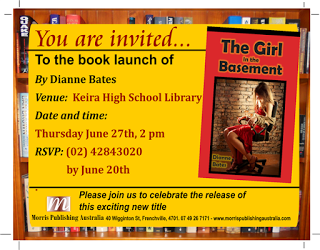
ABOUT KIDS BOOKS:
Di also has a children's book imprint as well. Busy lady, eh? Di has published one book All of Us Together which has gone into reprint and done very well (hopefully it will be CBCA short-listed) but she would dearly love to publish more. The problem is that she gets very few submissions, but she believes there is a real dearth of quality middle grade fiction out there.
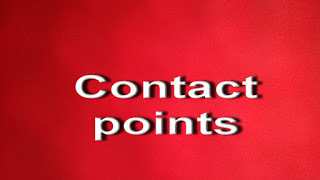
ABOUT KIDS BOOKS
BUZZ WORDS
WEBSITE - ENTERPRISING WORDS
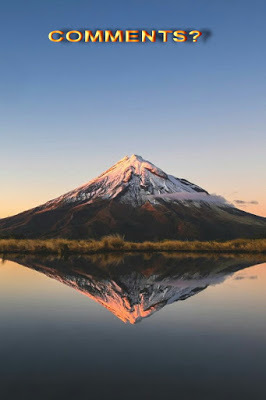
Clancy's comment: Dianne (Di) Bates has been in the industry for decades! She has published over 130 books for children, some of which have won state and national awards, including two children’s choice book awards (WAYRBA and KOALA). She is married to award-winning children’s author Bill Condon.

Many thanks to Di and her book reviewers for assisting authors like me. So, folks, there are some opportunities for you on this post, especially you writers of middle grade fiction. Check out the websites above. They are most interesting and certainly user friendly.
Love ya work, Di!
I'm ...
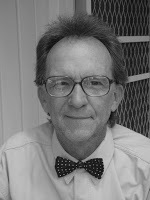

Published on April 27, 2017 14:00
April 26, 2017
27 April 2017 - THAT vs. WHICH
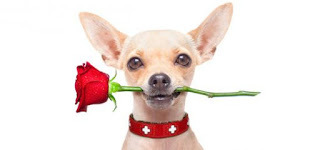
THAT vs. WHICH
G'day folks,
Here are two more of those words that often cause us grief.
To understand when to use that vs. which, it’s important to keep in mind the difference between and restrictive and non restrictive clauses. In formal American English, that is used in restrictive clauses, and which in used in non restrictive clauses.
A restrictive clause contains information that limits the meaning of the thing being talked about. For example, in the sentence “Any book that you like must be good,” the relative clause “that you like” is restrictive becau
se it identifies specifically a book that you like. Note that in restrictive clauses, sometimes that can be omitted. “Any book you like must be good” is also often used, especially in informal settings.
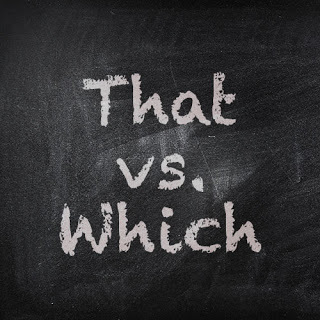
A non restrictive clause, on the other hand, is used to supply additional information that is not essential to understanding the main point of the sentence. Consider the example “The book, which I found at a dusty used bookstore, was a real page-turner.” The relative clause “which I found at a dusty used bookstore” is non restrictive because it adds extra information, almost like an aside. You could delete the details about the bookstore, and the sentence would still make sense. In this example, which is preceded by a comma; non restrictive clauses tend to follow punctuation like a comma, a dash, or parenthesis. Which is only used in restrictive clauses if it’s preceded by a preposition.
Luckily there’s an easy way to remember whether to use that or which. If the relative clause contains information that is not essential to the meaning of the sentence, and is also preceded by a comma, a dash, or parenthesis, it’s probably non restrictive, so use which. If not, odds are it’s restrictive, so use that.
However, the above distinction is a rule of formal American English, and is not as strictly observed in British English or in informal English of any type.
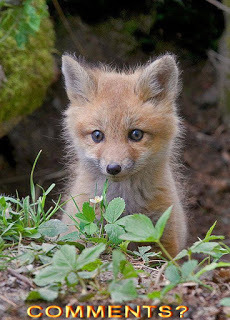
Clancy's comment: Mm ... American English?
I'm ...


Published on April 26, 2017 14:30
April 25, 2017
26 April 2017 - WHY THE REPUBLICAN PARTY IS THE ‘GOP’
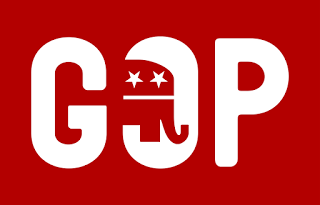
WHY THE REPUBLICAN PARTY IS THE ‘GOP’
G'day folks,
I bet you have always wondered about this.
The initials synonymous with the Republican Party—“GOP”—stand for “grand old party.” As early as the 1870s, politicians and newspapers began to refer to the Republican Party as both the “grand old party” and the “gallant old party” to emphasize its role in preserving the Union during the Civil War.
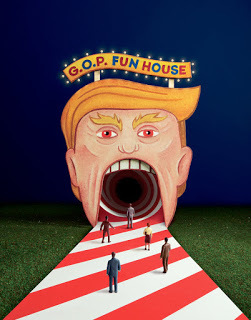
The Republican Party of Minnesota, for instance, adopted a platform in 1874 that it said “guarantees that the grand old party that saved the country is still true to the principles that gave it birth.” In spite of its nickname, though, the “grand old party” was only a mere teenager in the early 1870s since the Republican Party had been formed in 1854 by former Whig Party members to oppose the expansion of slavery into western territories.
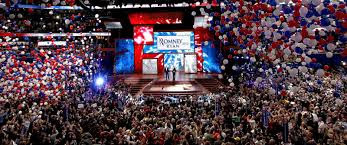
The “grand old party” moniker was actually first adopted by the Republicans’ elder rival—the Democratic Party—which traced its roots back to Thomas Jefferson and Andrew Jackson. In his 1859 inaugural address, Kentucky’s Democratic Governor Beriah Magoffin proclaimed, “The grand old party has never changed its name, its purposes, or its principles, nor has it ever broken its pledges.” The following year a Democratic newspaper in New Haven, Connecticut, looked ahead to the presidential election of 1860 and warned that “this grand old party is divided and in danger of defeat.”

“Safire’s Political Dictionary” reports that the Republican’s GOP acronym began to appear in print in 1884. Newspapers in 1936 credited T.B. Dowden, a Cincinnati Gazette typesetter, with coining the initials after receiving a story about 1884 Republican presidential nominee James Blaine shortly before press time that ran too long. “My copy ends with ‘Grand Old Party,’ and I have two words left over after I’ve set the 10 lines. What shall I do?” Dowden asked his foreman. “Abbreviate ’em, use initials, do anything, but hurry up!” came the reply. In a rush, Dowden shortened the name of Blaine’s planned speech from “Achievements of the Grand Old Party” to “Achievements of the GOP.”
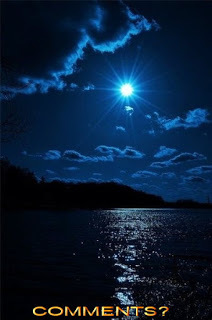
Clancy's comment: But, do they use an elephant as part of their symbol? Apparently so, but why? Well, they say that cartoonist Thomas Nast used the Democratic donkey in newspaper cartoons and made the symbol famous. Nast invented another famous symbol—the Republican elephant. In a cartoon that appeared in Harper's Weekly in 1874, Nast drew a donkey clothed in lion's skin, scaring away all the animals at the zoo. Mm ...I'm ...


Published on April 25, 2017 19:43
April 24, 2017
25 April 2017 - MOVING PICTURES
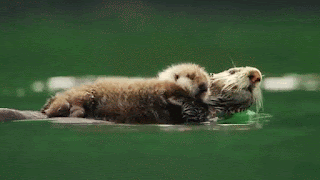
MOVING PICTURES
G'day folks,
Welcome to some more moving pictures to get you cranked up for the day.
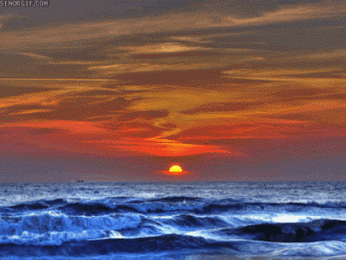
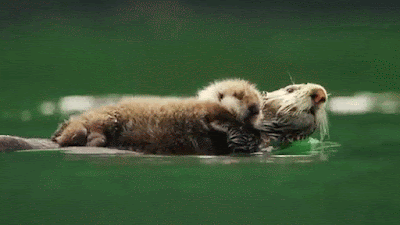
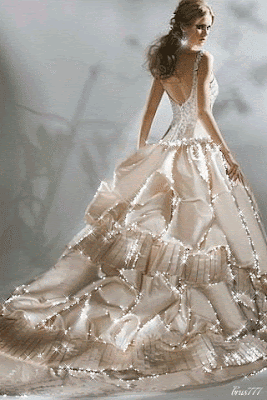
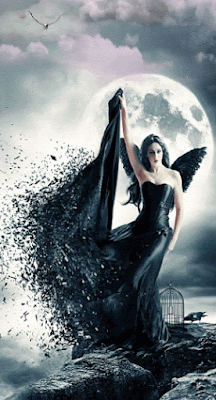
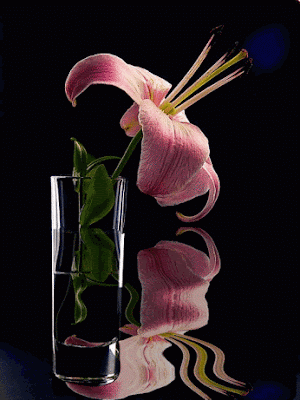
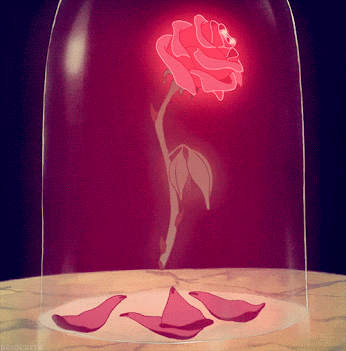
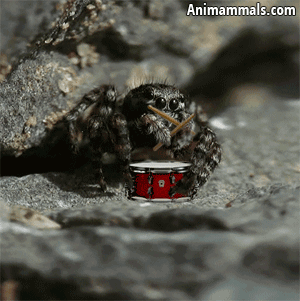
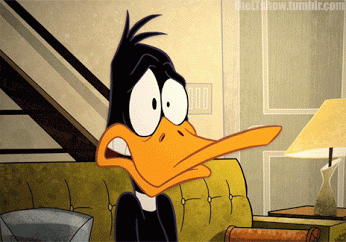
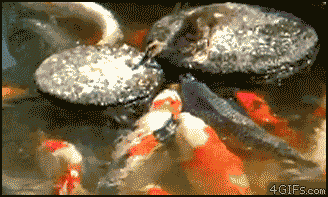
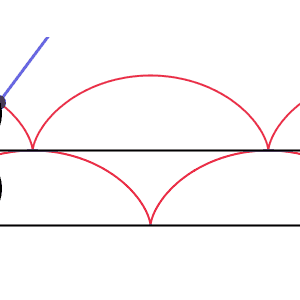
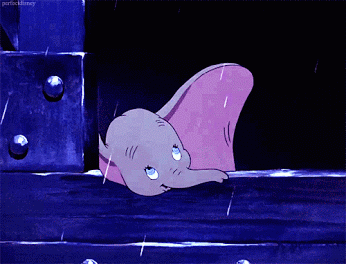

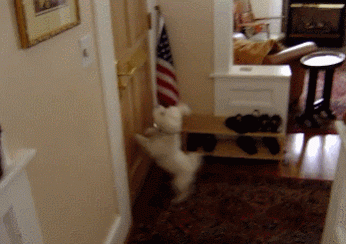
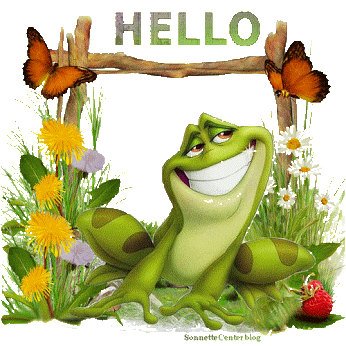
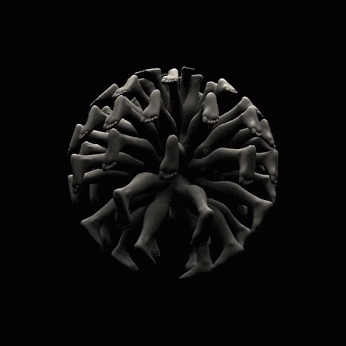
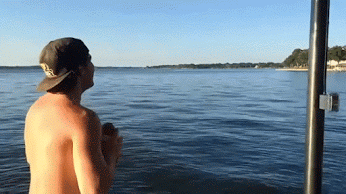
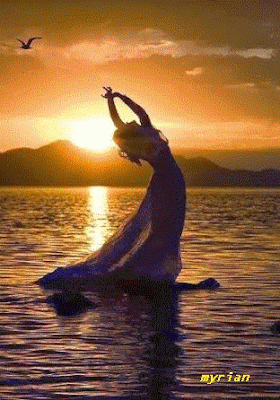
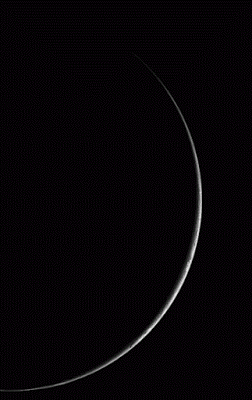

Clancy's comment: There are some top ones here. Love the crazy dog with the mail.
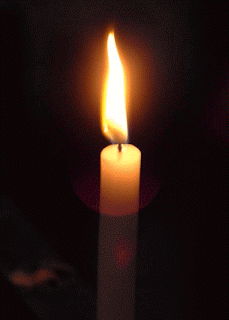
Today is Anzac Day in Australia. Here are a few shots of our very wet Dawn Service in Cobram early this morning. Lest we forget.





I'm ...
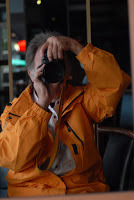
LEST WE FORGET
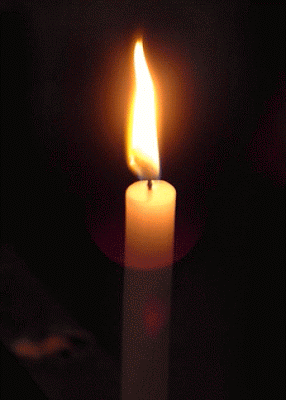
Published on April 24, 2017 15:41
April 23, 2017
24 April 2017 - VICKI NELSON - Special Guest
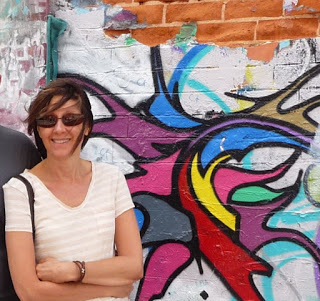
VICKI NELSON- Special Guest -
G'day folks,
I'm pleased to introduce and interview an inspiring lady from the USA.
Welcome, Vicki ...
1. Tell us about you and what you do.
I’m a writer living in the Pacific Northwest portion of the United States, with my husband and 200(ish) books. I love taking photos (and scattering them throughout our home), painting, and drawing. When I’m not writing, or getting injured while exercising, I can be found in the kitchen creating (usually) edible concoctions. But none of that really matters. What matters is this-I am a survivor.
Nearly seven years ago I received a brain injury in an auto accident, the very thing I thought would kill me, and the very thing that saved me life.
2. What was the happiest moment of your life?
When my children were born. I never knew such a love existed.
3. What was the saddest moment?
When my father passed away. It was then I realized I never knew him, and never would.
4. What surprised you most?
The fact that I missed my dad.
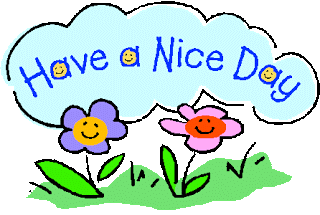
5. What was your greatest disappointment?
Overall, I’m fairly resilient, and don’t let disappointment rule my life. However, if I had to choose something, I’d say I wish I had taken the time to get to know my dad better. He didn’t know how to talk to me, but as an adult, I could have taken the initiative and talked to him.
6. Who did you misjudge? Why?
My husband. He was my rock after the auto accident. I never knew how strong he was, but I never needed to - we’d never dealt with anything this challenging before.
7. What or who was your biggest challenge?
Overcoming aphasia caused by my brain injury. It was humbling not being able to fill out a doctor’s form because I couldn’t read or comprehend, or not to be able to follow a simple conversation.
I took writing classes within a few years after my injury (though I couldn’t tell you exactly when I began), and honestly don’t know how I got through. I had to print every little comment made by a peer or the instructor, and keep track of each assignment with check lists. Every day was new to me. I couldn’t remember what I had done the day before, or what was due that day. But I was determined, and in the end, I not only received my certificate, but accomplished it with straight A’s.
8. What has been your biggest regret?
How does the song go? “Regrets. I’ve had a few.” My biggest regret is not pursuing my writing dream when I was younger. Oh, wait, maybe it’s the fact I spent too many years working a job I didn’t like, and not enough time with the family I loved. Or maybe it’s the fact that I didn’t know my dad very well.
Wait, never mind, I know my biggest regret-not seeing my grandma before she died. I was barely in my twenties, into my job, myself, and my relationship with a new boy. I’d bought my grandma’s favorite crackers, placed them on the kitchen counter, intending to visit her. But I never did. Weeks later, she was gone. I think that’s my biggest regret of all.
A word about regrets. If we live our lives with regrets, what will we accomplish? Maybe regrets are just mistakes, lessons for us to learn.
9. What would be your dying comment? Why?
Life arrives in stages: The beginning, when we receive our first breath; The middle, with moments that nearly take our breath away; The end, when life leaves, and we are quietly reminded of all we have done, and all we were given. Each stage is a gift-I’m learning that now.
10.Who or what stunned you the most?
I am amazed by everything, and nothing at all. I am amazed at the earth, the sheer expanse of it, the hundreds of thousands of creatures that climb it every day. I am amazed by life, and how fragile it is, and yet, how resilient we can be. And yet, I am stunned by nothing.
People jump large terrains, swim across the sea, hike crazy-high mountains. Nothing surprises me. Why? Because we are amazing, capable of more than we give ourselves credit for.

11.What would you like written on your tombstone? Why?
She lived a happy life. Because I did.
12.Who would you rather have not met? Why?
I didn’t meet this man, rather I saw him when I attended a golf tournament. He was a former baseball player accused of abusing his wife. The day I saw him, he was sitting on a golf cart. Our eyes locked. All I could think about were the rumors I had heard, and I was so sad. I was sad for the hero he had been, and the person he would be remembered as. I’ll never forget the look in his eyes that day-such sadness, so much regret. Those dark eyes will haunt me forever.
13.Who were you most envious of? Why?
I don’t feel envy, not in the classic, “I want to be her,” or “I want what that person has.” If my dad taught me anything, it was that (in his words), “People are just people.” Some have more, some have less, but in the end, we are all the same.
If I ever felt envy, it was when someone else had so much confidence when I had none. Then again, I often remind myself that they may not be as confident as they appear.
14.Who did you forgive – for doing something you never thought you’d forgive?
I can’t directly answer this. Let’s just say I’ve forgiven family and friends for doing horrible things. And I’ve forgiven the man who drove too fast and rammed his car into ours, causing my brain injury. The thing about forgiveness is this, if you don’t forgive, you are the one who goes on hurting.
15.What was your greatest moment in your life?
Holding my premature babies in my arms.
16.What is your greatest achievement?
Obtaining a writing certificate after a brain injury.
17.What personal traits would you like to have in your next life?
More carefree, not so uptight.; Not obsessed with possessions, or comparing myself with others.; I’d laugh and cry more, not be so stoic; I’d live life straight-forward and head-on, like every day was my last; I’d stop worrying about the next moment, and enjoy where I’m at.
18.What advice would you give to world leaders?
Listen.

19.What advice would you give to parents today?
Your children don’t need as much as you think they do. All they need is you. Let go of the excess-extra hours at work to acquire more things, extra toys, extra clothes, extras that bog you down. Let go of extra cleaning and too much volunteer work. Enjoy life as it is, in all its pure simplicity.
20.Who would you choose to be stuck on a desert island with?
My husband. He is my best friend, my rock, the one who knows all my crazy quirks, who (though he doesn’t always understand) listens to my drama-ridden emotions, and is always there for me. He is the one I quickly fight with, and the one I quickly make-up with. We share every laugh and tear, every dream and sorrow. And I know, without a doubt, he would fight to save me.
21.Have any heroes? Why? Who?
Every strong woman has always been my hero-from Amelia Earhart to Anne Frank to Katherine Hepburn. But my greatest hero was my grandma. She helped raise me, care for me, discipline me, protect me. She taught me the strength and beauty of being a lady. But the coolest thing about her was how she could pull herself across a floor, swim the length of a pool, and transfer herself from a wheelchair to a bed, all without the use of her legs.
She had polio from the time she was eleven, but that never stopped her, not from marrying, raising five children, or taking care of me. She was strength, resilience, and courage.
22.What are the greatest legacies you will leave behind?
I hope my greatest legacy is my story of survival. I hope my children, grandchildren, and beyond, read about a woman who lived many years before and conquered her own world. I hope my grandma’s legacy becomes mine, and mine becomes my family’s.
23.What’s lacking in the world today?
That’s a loaded question. We lack many things-not enough grace, understanding, love, forgiveness-towards one another. Families are split. Friends disown friends.
Communication is incomplete, at the best. We are apathetic, towards each other, and the little green planet on which we reside. But in all we lack, we hold so much. Our imperfections cause us to hope, to search for something more, something better, something bigger than all of us. We are each so imperfect, so beautifully flawed. Perhaps that’s what holds us together.
24.Any pearls of wisdom for the rest of us?
I am not wise, not even a tiny bit. I’m still learning. But someday, if my grandchildren come to me and ask for wisdom, I will tell them this: In all my life, I’ve never owned one piece of jewelry, car, a tiny possession that made me happy. If I could do it all over again, I’d live more for others, and less for myself.
25.What would be the last sentence you ever write?
The end is the beginning to a new life.
26.What inspired you most?
I am inspired by those who persevere through hard times-the one-legged man who runs a marathon, the abused woman, the little girl who is given away. I am amazed at the strength and resilience of people.

27.Who or what made you laugh the most?
Children make me laugh. Corny jokes, the dainty three-year-old girl giggling as she burps, the silly laughing over nothing. I love how they enjoy each simple moment.
28.What would be your top three chosen careers in your next life?
Writer. Photographer. Dancer. Preferably all at the same time.
29.What is your prime focus in life today?
Finishing my memoir. It has taken many rewrites, thousands of tears, tons of emotion, and a whole lot of pain. Portions of my life were missing before and after the accident, and even today, I struggle with finding those missing pieces. But the tears have mostly subsided, and the fear of sharing my story with the world is almost gone. I can’t wait for my story to be completed! (This is the year.)
30.Do you have any fear of doing something wrong?
All the time. But maybe it is those very ‘wrong’ things that have helped me grow.
31.If or when you reflect on your past, can you identify any world events that you believe had a significant impact on you?
I cried for a week after 9-11, and to this day, I still see images of crumbling towers. Then there was a tsunami in 2010 or 2011, I don’t know which, but I guess it was huge. I say ‘guess’ because I don’t remember the tsunami- it happened after my brain injury. My husband and I recently watched a documentary about it, and it scared me, not remembering, not being there when others were hurting, not praying, not giving money (at least not that I know of).
32.Do you think one can live a purposeful life without knowing the meaning of life?
Does anyone know the meaning of life? All I know is this, many people, whether they know it or not, live a purposeful life. The scientist who creates a cure, the teacher who pours hours and days into his students, the artist who inspires, the entertainer who entertains, the dad who works extra hours providing for his family, the mom who sits up all night with sick children. They all live a purposeful life. But do they know the meaning? I doubt it.
33. From your perspective - what is the way forward for the world?
Yikes. I’m going to make some people uncomfortable here. Our world is crumbling, species extinct, a sick planet, and even sicker people. Wars, crime, abuse, the list goes on. We can’t fix all our problems. But we can do this-whatever we can.
It’s easy to think we are one tiny person in a huge, huge world. And in a way, that’s true. When we look at the world’s problems, it’s overwhelming. But the fact of the matter is this - we, even as one person, can impact the world.
Lend a hand to the elderly, care for the sick, tend to a child, teach someone to read. One person can change the world. I think we forget that.

34.Imagine that you were given a chance to live again, what will you do first and what will you do differently?
I would start writing when I fell in love with words, and never stop.
I would travel and experience the world. I would leave my house emptier, give more time to family, and less to things.
35. Do you have a bucket list? Tell us more.
See every inch of my country, and the world beyond.
Volunteer to help save the planet, or start an organization of my own.
Learn French (better) and Italian.
Learn to dance the soft-shoe. (Corny, but I love it.)
Finish my memoir. Write a few more. Write a novel, or two, or three.
Take my family (all of them) on a long vacation.
Write children’s books, and donate them.
36.Any great claims to fame?
I don’t have one of those large ‘look-at-me-I’m-famous’ moments. I wrote a few small pieces that were published before my accident, and had my name placed in the Library of Congress.
I started a blog (The Simple Hippie), which was a big deal for me. Just getting beyond the insecurities that arise after an injury like mine was hard.
But as far as fame goes? Not really, but I’m okay with that. I’m not sure fame is about being well-known. I think it is the small, scattered moments, the insignificant details, that we will be remembered for.

37.Anything you’d like to add?
Only this-Never take life too seriously. And enjoy it while it’s here.
Be in the moment, never so distracted by life, that you forget who you are with.
And always, always laugh.

WEBSITE
Clancy's comment: Thank you, Vicki. I could spend hours chatting to you. Great answers. Keep going.
I'm ...
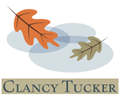

Published on April 23, 2017 14:26
April 22, 2017
23 April 2017 - THE AFRICAN WILD DOG
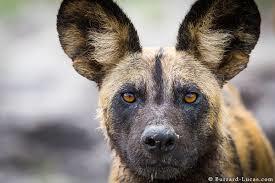
THE AFRICAN WILD DOG
G'day folks,
Welcome to some facts about another wild animal. The African wild dog, African hunting dog, African painted dog, Cape hunting dog or painted wolf is a canid native to Sub-Saharan Africa.
Like other dogs, African wild dogs are highly social. They usually live in packs of six to twenty individuals with a dominant breeding pair. They communicate through a variety of vocalizations, movements and touch.

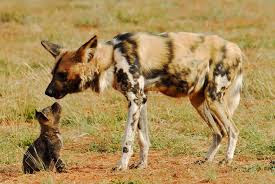
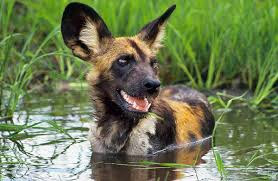

Amazing Facts About the African Wild Dog
The scientific name for the African Wild dog means “painted wolf”. No two wild dogs have the same markings, which makes them easily identifiable as individuals.African wild dogs have huge home ranges and are constant wanderers. In the Serengeti the estimated size of each pack’s territory is 1,500 km2. An area the size of Greater London, which is home to 7.5 million people, could therefore only support one or two African wild dog packs.Unlike many other species, once they reach maturity it is the males that stay within their natal pack while females migrate and join new packs.Pups that are old enough to eat solid food are given priority at a kill, even over the dominant pair.The dogs have a peculiar rather playful ceremony that bonds them for a common purpose and initiates each hunt. They start circulating among the other pack members, vocalising and touching until they get excited and are ready to hunt.African wild dogs are intelligent and cooperative hunters. Some of the dogs run close to the prey while the others fall behind. They then take over when the front members tire.When feeding, they lack aggression towards each other and share the kill; even with members who may not have been involved in the actual hunt.The entire African wild dog pack shares responsibility for protecting the cubs, with both males and females babysitting the young.Although once considered a “pest”, the African wild dog has become a symbol of pride in Zimbabwe. Thanks to efforts by local communities and NGO’s, the wild population in Zimbabwe has almost doubled in recent years.
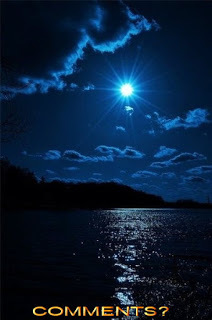
Clancy's comment: Not the prettiest critter, but a survivor.
I'm ...
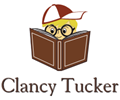

Published on April 22, 2017 14:19



